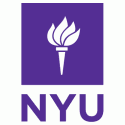 In the United States, individuals with a graduate degree experience higher rates of employment and financial benefits. However, a new report from the Center on Education and the Workforce at Georgetown University has uncovered a racial gap in the representation and equity among Americans who hold an advanced degree.
In the United States, individuals with a graduate degree experience higher rates of employment and financial benefits. However, a new report from the Center on Education and the Workforce at Georgetown University has uncovered a racial gap in the representation and equity among Americans who hold an advanced degree.
According to the report, Black Americans represent some 12 percent of the United States population, but only 9 percent of all graduate degree holders. In comparison, White Americans and Asian Americans represent 62 percent and 7 percent of the population, yet make up 68 percent and 13 percent of graduate degree holders, respectively. Additionally, Black American graduate students disproportionally attend private, for-profit schools compared to White, Asian, and Hispanic students, resulting in an increased likelihood of taking on federal student loans and experiencing a higher level of post-graduation debt.
Even when earning the same type of degree, Black Americans with graduate degrees earn less on average than White and Asian Americans. According to the report, Black American graduate degree holders earn a median annual income of $83,000, compared to an average salary of $101,000 among White graduate degree holders and $117,000 among Asian graduate degree holders.
These racial disparities persist when broken down by different fields of study. Black Americans were found to earn less than the median income of graduate degree holders in STEM, business, healthcare, social sciences, and humanities fields. The only field where Black Americans were on par with the median income was education, with an average income of $70,000 per year.











